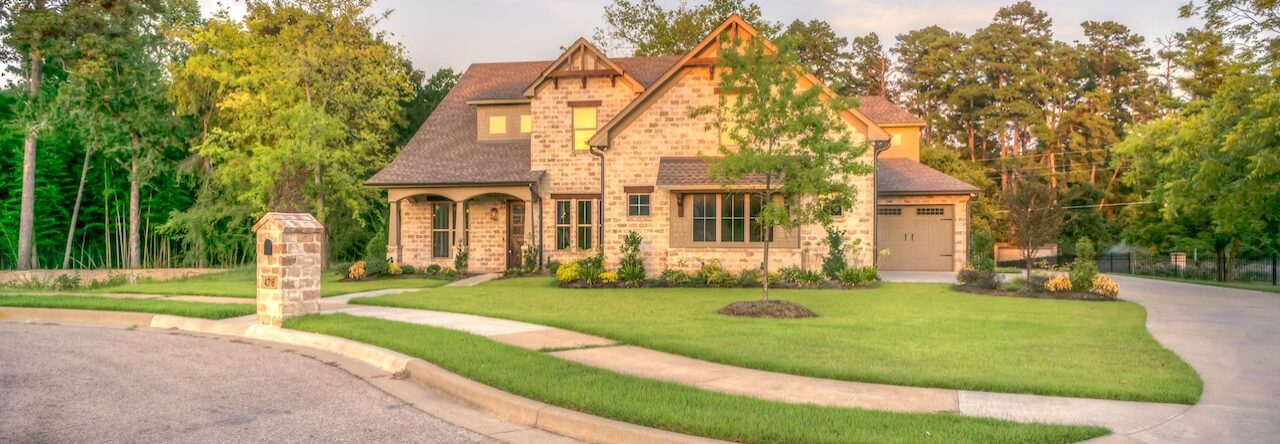If you want to maintain a healthy lawn in Marietta, Georgia, there are some things you should avoid. Here are some tips on what to avoid to have a healthy lawn:

- Overwatering
While it’s important to ensure that your lawn receives adequate water, overwatering can actually harm your lawn. Overwatering can lead to shallow roots, which can make your lawn more susceptible to disease and pests.
To avoid overwatering, it’s important to know how much water your lawn needs. Generally, your lawn needs about 1 inch of water per week, including rainfall. You can measure the amount of water your lawn is receiving by placing a rain gauge or a small container in the lawn and measuring the amount of water that collects. - Mowing Too Short
Mowing your lawn too short can also harm your lawn. It can stress the grass and make it more susceptible to disease and pests. Additionally, cutting the grass too short can damage the root system and make it harder for the grass to absorb nutrients and water.
To avoid mowing your lawn too short, it’s important to adjust your mower blades to the proper height for your specific type of grass. Generally, you should aim to keep your grass at a height of around 2-3 inches. - Using Chemical Pesticides and Fertilizers
While chemical pesticides and fertilizers can help maintain a healthy lawn, they can also be harmful to the environment and to human health. Chemical pesticides can harm beneficial insects, such as bees and butterflies, and can also contaminate water sources.
To avoid using chemical pesticides and fertilizers, consider using organic or natural alternatives. Organic fertilizers can provide the necessary nutrients for your lawn without the harmful chemicals. You can also use natural pest control methods, such as companion planting and integrated pest management. - Ignoring Drainage Issues
Proper drainage is essential for maintaining a healthy lawn, especially in Marietta, where the climate can be hot and humid. Ignoring drainage issues can lead to water pooling, which can create hazards and damage your lawn.
To avoid drainage issues, ensure that your lawn has proper drainage by installing a French drain or other drainage system. It’s also important to ensure that your lawn is properly graded to prevent water from pooling. - Planting Invasive Species
Planting invasive species can harm your lawn and the surrounding environment. Invasive species can choke out native plants, reduce biodiversity, and make it harder for beneficial insects and animals to thrive.
To avoid planting invasive species, do your research before choosing plants for your lawn. Choose plants that are native to your region and that are well-suited to the local climate. - Overfertilizing
While fertilizing can help maintain a healthy lawn, overfertilizing can actually harm your lawn. Applying too much fertilizer can lead to nutrient runoff, which can contaminate water sources and harm aquatic life. Overfertilizing can also cause excessive growth, which can make your lawn more susceptible to pests and disease.
To avoid overfertilizing, it’s important to follow the instructions on the fertilizer package and apply the correct amount for your lawn. It’s also important to avoid fertilizing during drought conditions or when the lawn is already stressed. - Ignoring Weeds
Ignoring weeds can harm your lawn by choking out the grass and reducing its ability to absorb nutrients and water. Weeds can also be unsightly and reduce the aesthetic appeal of your lawn.
To avoid ignoring weeds, it’s important to address them as soon as they appear. Consider using natural or organic weed control methods, such as mulching, hand pulling, or using a weed barrier. It’s also important to ensure that your lawn is properly fertilized and watered, as healthy grass can compete better with weeds. - Parking or Driving on Your Lawn
Parking or driving on your lawn can damage the grass and soil, and create compacted areas that can make it harder for the grass to absorb nutrients and water. It can also create unsightly tire tracks that can detract from the aesthetic appeal of your lawn.
To avoid parking or driving on your lawn, consider using a driveway or other designated parking area. If you must drive on your lawn, be sure to spread the weight by using plywood or other materials to distribute the load. - Using Salt to Melt Ice
Using salt to melt ice can harm your lawn by contaminating the soil and making it harder for the grass to absorb nutrients and water. Salt can also damage plant roots and create unsightly brown patches on your lawn.
To avoid using salt to melt ice, consider using sand or other non-toxic materials to provide traction. You can also use non-toxic ice melt products that are safe for use around plants and pets. - Allowing Debris to Accumulate
Allowing debris, such as leaves and branches, to accumulate on your lawn can harm your grass by preventing sunlight and air from reaching the soil. This can create a breeding ground for pests and disease, and reduce the overall health and appearance of your lawn.
To avoid allowing debris to accumulate, be sure to rake or remove leaves and other debris regularly. Consider composting the debris to create a natural fertilizer for your lawn. - Not Testing Your Soil
Not testing your soil can make it difficult to determine the specific nutrient needs of your lawn. Without this information, you may be over-fertilizing or under-fertilizing your lawn, which can lead to poor growth and reduced health.
To avoid this, it’s important to test your soil regularly, ideally every two to three years. This will help you determine the specific nutrient needs of your lawn and make informed decisions about fertilization and other lawn care practices. You can purchase soil test kits from your local gardening center or hire a professional to test your soil for you.
Maintaining a healthy lawn in Marietta, Georgia requires avoiding some common mistakes. To have a healthy lawn, it’s important to avoid overwatering, mowing too short, using chemical pesticides and fertilizers, ignoring drainage issues, and planting invasive species. By prioritizing natural and organic methods, and by taking steps to ensure proper water and nutrient levels, homeowners can maintain a beautiful and healthy lawn that is safe for people and the environment.
